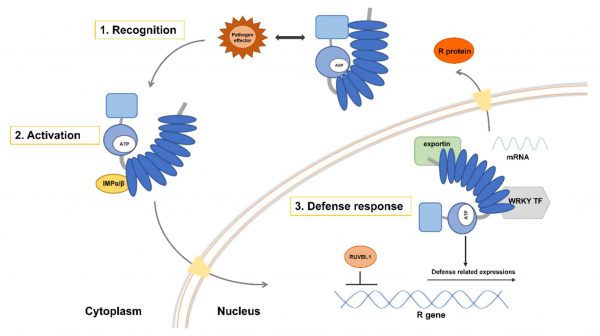A recent publication of researchers from Zhejiang University (China), University of Amsterdam (The Netherlands), Université de Toulouse (France) and Guangdong Academy of Sciences in Guangzhou (China) in the International Journal of Molecular Sciences describes the virulence mechanisms of parasitic plants and resistance mechanisms in their hosts, focusing on obligate root parasites of the Orobanchaceae.
Parasitic plants have a unique heterotrophic lifestyle based on the extraction of water and nutrients from their host plants. Some parasitic plant species, particularly those of the family Orobanchaceae, attack crops and cause substantial yield losses. The breeding of resistant crop varieties is an inexpensive way to control parasitic weeds, but often does not provide a long-lasting solution because the parasites rapidly evolve to overcome resistance. Understanding mechanisms underlying naturally occurring parasitic plant resistance is of great interest and could help to develop more sustainable methods to control parasitic plants.
Resistance (R) genes in the host genome often encode proteins with nucleotide-binding and leucine-rich repeat domains (NLR proteins), and the mechanism by which host plants use NLR proteins to activate downstream resistance gene expression is discussed. The authors speculate how parasitic plants and their hosts co-evolved and discuss what drives the evolution of virulence effectors in parasitic plants by considering concepts from similar studies of plant–microbe interaction. Most previous studies have focused on the host rather than the parasite, and therefore an updated summary of genomic resources for parasitic plants and parasitic genes is provided for further research to test hypotheses.
Finally, new approaches are discussed such as CRISPR/Cas9-mediated genome editing and RNAi silencing that can provide deeper insight into the intriguing life cycle of parasitic plants and could potentially contribute to the development of novel strategies for controlling parasitic weeds, thereby enhancing crop productivity and food security globally.
Hu, L.; Wang, J.; Yang, C.; Islam, F.; Bouwmeester, H.J.; Muños, S.; Zhou, W. The Effect of Virulence and Resistance Mechanisms on the Interactions between Parasitic Plants and Their Hosts. Int. J. Mol. Sci. 2020, 21, 9013. DOI: https://www.mdpi.com/1422-0067/21/23/9013/htm
Further information: Luyang Hu, hu.luyang@foxmail.com; Prof. Weijun Zhou, wjzhou@zju.edu.cn
